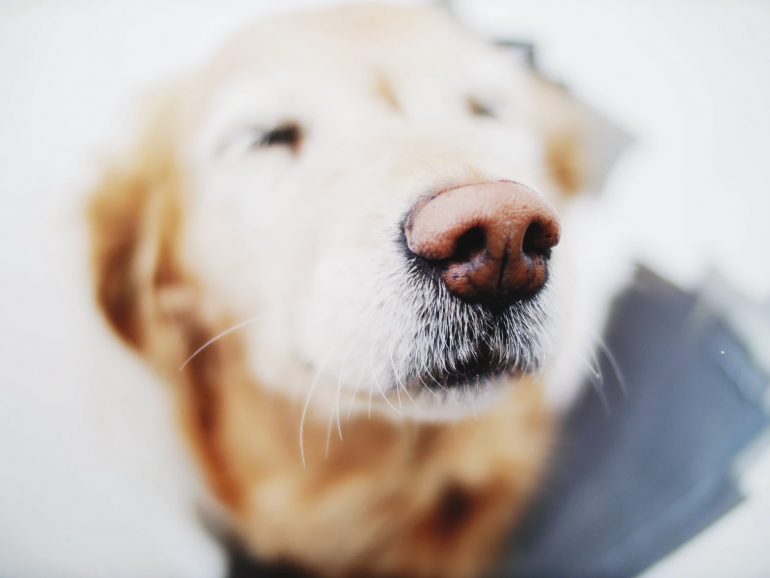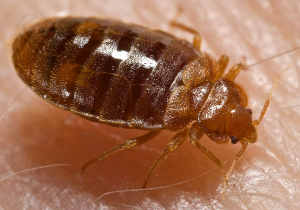No dog owner would ask this question for the sake of it, right?
So, you’ve probably noticed something unusual about your pup’s behaviour – it is scratching more than usual, the dog seems to feel somewhat restless, and generally – something’s wrong. Or you’ve found bed-bug-like bites on your skin and now, wonder if your dog has somehow anything to do with it.
- Did you happen to have a bed bug infestation lately?
- Do you suspect that bed bugs found shelter and live on your dog?
So, let’s see if your poor four-legged friend can take the blame for your troubles with these minuscule pest insects and get some answers to your most pressing questions.
At BestPets.co you’ll learn whether dogs can carry bed bugs if bed bugs like dogs at all and what are the signs to look for in your pup and rule in on a bed bug problem.
Can You Get Bed Bugs from Dogs?
Bed bugs are tiny insects that feed exclusively on blood, in order to reproduce and go through all their development stages, they need to feed. Bed bugs have evolved biologically into species that can survive and thrive on human blood only, with some exceptions.
With this said, however, the little crawlies will make a dash for any mammalian or bird blood in dire times (if given the chance) to avoid starvation and the possible demise of the colony.
Also, they are renowned for their hitchhiking skills and will use every opportunity to attach to your bags, dog clothing or shoes as a means of transport to a more favourable environment.
So, in theory, your home can get infested with bed bugs from your dog. These pests could use your pet as a sneaky way to invade your home, their bed and eventually.. your bed. If you made your home too dog-friendly, you might have to get rid of everything.
Do Bed Bugs Attach to Dogs and Spread?
Unlike fleas, which will happily snuggle into your pet’s fur to have a nap in between meals, bed bugs don’t hang around on their host for long but could dogs can carry bed bugs from one house to another. The vermin critters will usually drop on the floor and hide in the nearest nook or cranny after their 5-minute feast but they could hold on for long enough to reach and attack humans.
However, for other pest-related problems, make sure to read my thorough advice:
- 5 BENEFITS OF USING FLEA AND TICK TREATMENTS FOR YOUR DOG
- 5 BEST FLEA DIP FOR DOGS: KEEPING FLEAS AWAY
- HOW TO GET RID OF MITES ON DOGS?
Back to blood-sucking bed bugs.
According to Alexander Crawley, an Australian professional pest control exterminator, bed bugs can temporarily attach to your dog in the same way they can get a free ride on, say, your furry coat (after that short winter break when you stayed unknowingly in an infested hotel).
To sum it up, if you wonder whether dogs can cause bed bugs, the possibility is there, albeit we could never actually say that dogs will cause bed bugs. It might be hot weather, or simply luck.
HOT WEATHER SAFETY TIPS FOR DOGS AND CATS
Anyways, back to the point. Your pup could be the source but not the reason.
On a slightly different note, the fact that your dog has been affected by the troublesome insects is often a sign of an already existing infestation. And only due to their “overcrowded” conditions, bed bugs have made the wise move to invade your pet’s bed, in search of supplemental blood sources.
So, Can Dogs Get Bitten by Bed Bugs?
From all the above, dogs can fall prey to bed bugs and get bitten, especially if your property suffers from a full-blown infestation.
Otherwise, it’s unlikely that the pesky critters will choose to feed on your dog, when out and about, unless in extreme and rare circumstances.
What Do Bed Bug Bites Look Like On Dogs?
Naturally, if you find your dog constantly scratching, you wouldn’t immediately think: “It must be bed bugs”. But if your pet is experiencing this sort of discomfort despite its flea collar and regular treatments against ticks and fleas, then, you should consider the possibility.
Yes, the cause for your dog’s itching may well be a bedbug problem, which unfortunately won’t be contained to your pet only and its bedding.
Note: If that’s not the case, check my review of the best anti-itching shampoo for dogs.
So, without delay, inspect the animal’s tummy and its legs for any bites that look like small red or pinkish bumps. The pests go for body parts that are least covered in fur and will usually leave traces of their blood feast in straight lines, which you should be able to discern by the visible 3-4 reddish bumps, next to each other.
If you don’t treat your dog in time, the skin canadian neurontin irritation and excessive scratching may cause a bed bug rash.
What Other Signs Should You Look Out For?
As spotting the actual bites may be hard if your dog has thick, long fur, keep watch for other indicators, as well.
- Is your pup whimpering and trying to shake off an invisible intruder?
- Does its back hair look like standing up at times?
- Or maybe, your pet’s whiskers are strangely twitching?
Look for signs of general irritability, such as excessive licking or even nipping. And, of course, it goes without saying that if you spot obvious symptoms of an allergic reaction or dermatitis (Apoquel for blistering skin, hives, fur shedding, bald patches, etc.), take your dog to the vet straight away!
Apart from thoroughly checking your canine friend’s skin, you need to inspect its bed, as well, for other telltale signs. You may notice unusual spots on the fabric, which could be dried blood (from the actual bites on your doggy) or bed bugs’ excrements.
Furthermore, you may notice shed skins or even the almost invisible eggs of the pesky insects.
Last but not least, although unlikely, you may witness live and well-fed adult bed bugs, scurrying around in the creases and folds of your pet’s bedding.
Are Bed Bugs Dangerous to Dogs?
Or in other words, do bed bugs carry any diseases like ticks and fleas do?
Luckily, the blood-sucking insect pests are not known to transmit any pathogens that can cause harm or make you and your pet dangerously ill. This doesn’t mean that they are completely innocuous creatures.
As we’ve already mentioned, the troublesome crawlies can cause significant discomfort to their host and even trigger an allergic reaction. In that sense, the pests can turn into much more than a nuisance for your dog by causing skin inflammation that requires a visit to the vet and prompt treatment.
Also, note that in a severely infested environment, your dog may suffer temporarily from anemia if bitten multiple times by bed bugs, and especially if it has other chronic health problems.
Still, as long as you act accordingly by treating your property against the infestation and taking your dog to a vet clinic, there’s no reason for you to be overly worried about any dangerous outcomes, related to these vermin insects.
Do Flea and Tick Products Stop Bed Bugs?
Once you discover that your dog has bedbug bites, it’s only natural to wonder if flea and tick products can stop bed bugs or keep them away. Well, we presume that you’re a responsible dog owner, who regularly gives their pet an anti-tick and flea treatment.
So, the general answer is ‘No’. If your dog is still covered in bumps and keeps scratching uncontrollably. The truth is that bed bugs are resistant to the insecticidal activity of fipronil-based anti-flea products.
On the other hand, botanical insecticides containing the organic substance – pyrethrin (or its synthetic equivalent – pyrethroid) are lethal to bed bugs and are used as a base in some anti-tick/flea treatment solutions for dogs.
So, theoretically, such a flea product may prevent your pup from being attacked by bed bugs, which will prefer to feed on humans within your household even more so.
Can Dogs Detect & Smell Bed Bugs?
Dogs have been used as pest inspection aides in the quest to control bed bugs infestations. There are specialised pest control companies in the USA, the UK, and other countries, which train and employ bedbug-sniffing dogs in their line of work.
Still, using a bedbug detector dog is not a 100% reliable method to get the “all clear” when it comes to initial and follow-up bed bugs inspections, but a well-trained canine can identify the presence of the pesky insects, if in their numbers, with a pretty good level of accuracy.
Still, when it comes to pets (and not professionally trained dogs), counting on your furry friend to detect and alert you about a bed bugs problem in your home is simply a hit or miss. Your dog may certainly sniff a live crawly in its own bedding, but this doesn’t mean that it will bark about it.
Final thoughts
So, now you know that your pet can play part in the spread of bed bugs, although it’s not so common. Also, your dog can be bitten by these insects and this should prompt you to consult a veterinary specialist in due time. And if this is the case, you’re advised to treat the situation as an emergency, because an infested pet area is a sure sign of a bed bugs infestation in the property that has gone out of hand.
Don’t forget that the crawlies prefer human blood, so call for professional pest control help immediately to ensure your family’s well-being and to save yourself further stress and aggravation of the problem. For more peculiar know how and advice, check the rest of my pet resources.





